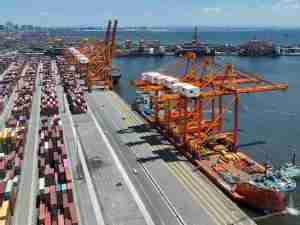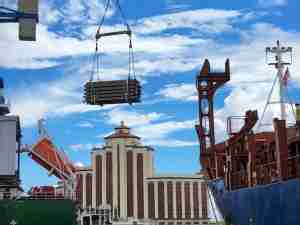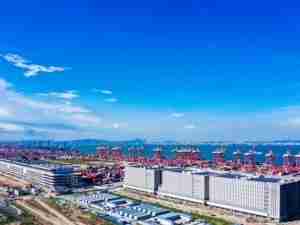But shipping agents fear the decision could cause more congestion in the short term.
The Port Authority Council (CAP) at Santos on Monday decided the hand-operated loading of ships with bagged sugar in public terminals will be restricted to one berth from three berths currently. The measure takes effect in 30 days.
The decision has been considered since last year, when workers interested in these operations started to become more scarce, Sergio de Aquino, the president of CAP, which unites government officials, private port operators and union representatives.
"We are wasting port infrastructure in a country that can not afford that," Aquino said.
"In light of the inefficiency of the operation, we decided that it is better to have one ship berthed and operating than three ships berthed and not operating because there aren't workers interested in this kind of work."
Only about 2 percent of the total sugar exported by Santos is loaded manually in bags, at public berths. The ships, practically all old, "substandard" and cheaper to contract, can take several days to load and account for much of the line-up.
"The problem is disproportionate," Aquino said.
Brazil is the world's largest sugar producer and exporter. It accounts for half of the global trade of the commodity.
Ships lined up to load sugar hit record levels last year as the country remained the only major producer with enough supplies to meet strong demand abroad. Frequent rains contributed to delays.
This year, lines started forming as early as April because supplies from the new crop were slow to hit terminals.
Aquino said 98 percent of sugar shipments in Santos are in private, specialized terminals that operate with modern equipment and that are very effective.
According to the port authority, the port has a capacity to hold 1 million tonnes of sugar and a capacity to load 300,000 tonnes of the sweetener per day.
The restriction of the berths will not be applied to ships already in line at the port, Aquino said. CAP also ordered Santos port to set minimum criteria of productivity with operators to improve efficiency in loading of bagged sugar.
Private terminals are not affected by the decision, but some agents see congestion at the port worsening with the restriction as there number of berths operating will fall.
Although most of these ships take on about 8,000 tonnes of sugar, there were 21,000-tonne vessels operating at public berths last year, when the lines peaked and private terminals focused the loading of VHP, or bulk sugar.
"These vessels are usually precarious but they helped the outflow of sugar last year," said Nicolle de Castro, commercial assistant at SA Commodities/Unimar shipping agency.
Ogmo, an organization responsible for managing workers at the port, did not reply to Reuters' questions on labor issues. (Reuters)










